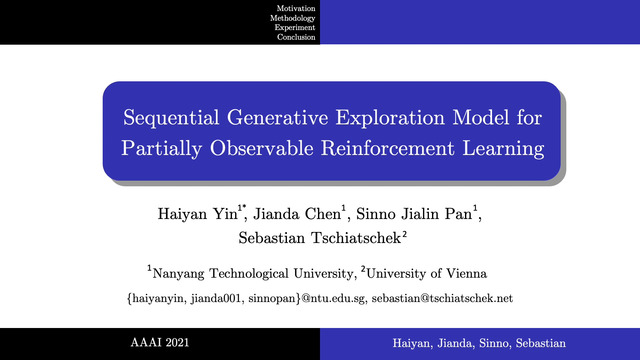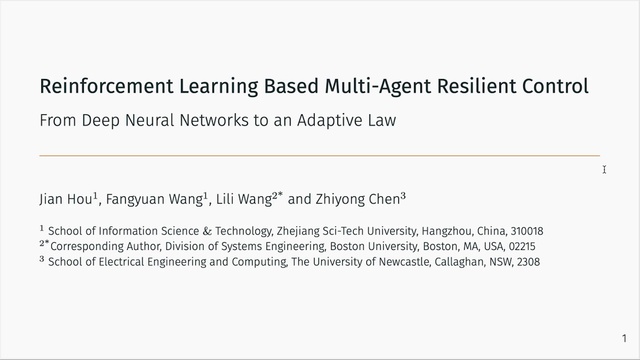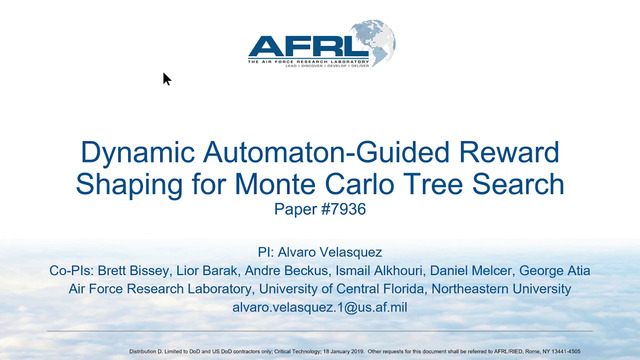Abstract:
Recently, deep multiagent reinforcement learning (MARL) has become a highly active research area as many real-world problems can be inherently viewed as multiagent systems. A particularly interesting and widely applicable class of problems is the partially observable cooperative multiagent setting, in which a team of agents learns to coordinate their behaviors conditioning on their private observations and commonly shared global reward signals. One natural solution is to resort to the centralized training and decentralized execution paradigm. During centralized training, one key challenge is the multiagent credit assignment: how to allocate the global rewards for individual agent policies for better coordination towards maximizing system-level's benefits. In this paper, we propose a new method called Q-value Path Decomposition (QPD) to decompose the system's global Q-values into individual agents' Q-values. Unlike previous works which restrict the representation relation of the individual Q-values and the global one, we leverage the integrated gradient attribution technique into deep MARL to directly decompose global Q-values along trajectory paths to assign credits for agents. We evaluate QPD on the challenging StarCraft II micromanagement tasks and show that QPD achieves the state-of-the-art performance in both homogeneous and heterogeneous multiagent scenarios compared with existing cooperative MARL algorithms.









































